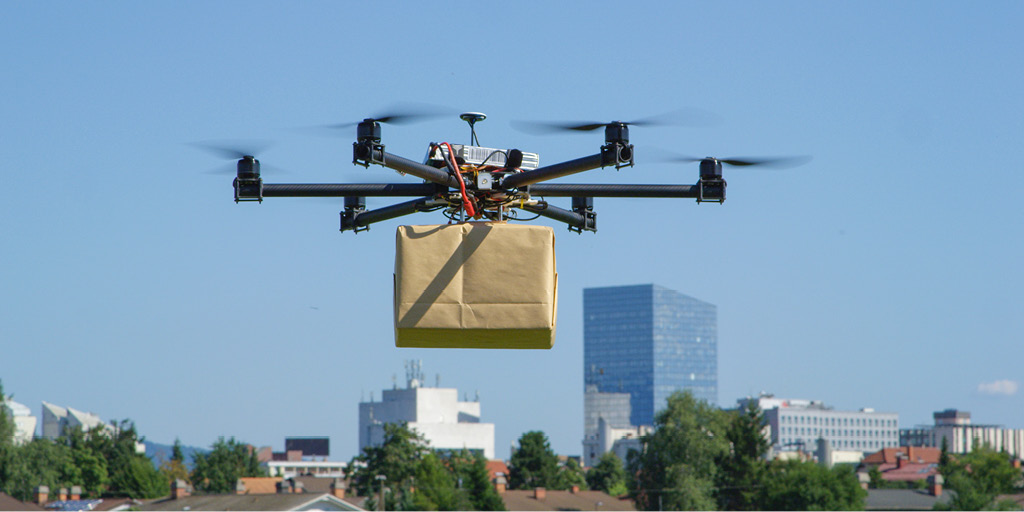With advances in shipping services and growing demand for faster, more secure delivery options, drone delivery services become a key area of focus for shippers.
According to a recent DroneLife.com market research report, “the global Drone Package Delivery Market is expected to reach USD $6,773 Million by 2026. The global Drone Package Delivery Market is expected to grow at a compound annual growth rate (CAGR) of 53% from 2021 to 2026.”
The promise of a growing market and increasing consumer demand make drone delivery a viable option for transportation service providers.
To capitalize on this new branch of last mile delivery, ask several key questions of service providers. This helps determine if their technology and service are the best fit for your needs.
1. Are Drones and Their Operators Licensed?
Drone delivery is, and shall remain, a highly regulated services.
Operators and their drones require certification, licenses, and registrations that vary depending on location. At a minimum, drone delivery of packages requires Federal Aviation Administration authorization. Specific documentation is required for security clearance.
No individual or private drone operator can engage in drone delivery service. Regulators closely scrutinize the entire process. Only authorized companies and drone operators access the addresses, order information, and other logistics data required for drone delivery.
2. Can Future Drone Delivery Accommodate Dynamic Rerouting?
Dynamic rerouting ensures convenient and customer-friendly delivery services, especially as the use of drones for deliveries becomes more common.
The success of drone delivery will rely heavily on dynamic rerouting. Just as trucks and vans need to alter courses often, drone delivery systems depend on real-time routing guide adjustments. This is a must-have functionality from the start.
3. Can Drones Return Canceled Orders?
Yes, drones can return with an undelivered shipment when a cancelation or other exception occurs.
Just as a truck driver returns an undelivered parcel its origin, drone delivery requires the same option. The ability to cancel an order at any time and refuse delivery makes it easier for many people to accept the idea of drones delivering their packages.
Drone technologies must accommodate for parcel return service and cancelations. These elements contribute to an exceptional customer experience.
Calculate your potential Saving While Using an enterprise TMS
4. What About Adding or Expanding Orders?
Drones are limited only by their power supply and payload. How much weight can a delivery drone carry?
Larger drones carry larger loads and take on additional weight as needed. Specialized drones have specific design parameters that allow for multiple pick-up and final delivery stops. Versatility and adaptability enable future drone delivery to achieve optimal success.
This proves especially vital as the popularity of e-commerce logistics and sales management increases.
Overcoming Objections to Future Drone Delivery With Innovative Systems
Retailers continue to seek effective ways to reduce delivery lead times and increase delivery flexibility and timelines.
The power of robotics and drones aid in the delivery process and also assist with inventory maintenance and control. More and more consumers and businesses are warming up to the idea of drone-based deliveries.
In larger, more populated cities prone to significant traffic congestion and other transportation issues, drone delivery service promises to offer a practical solution that benefits everyone.
Download our eBook to find out everywhere MercuryGate Final Mile drives value to your delivery service.


